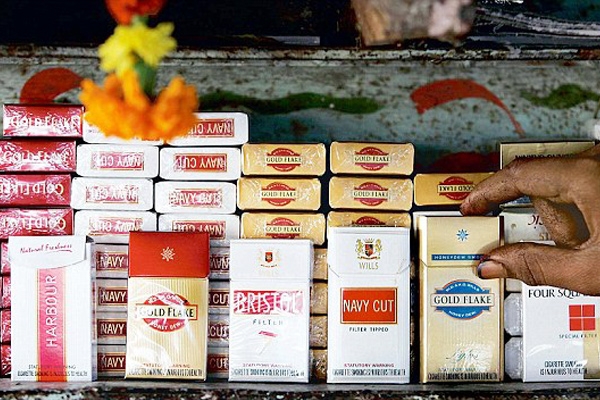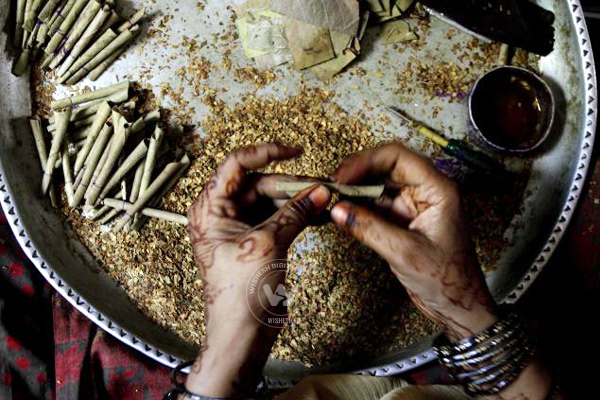
(Image source from: Can a steep hike in cigarette)
In a bid to curb country's growing addiction to fags, Health Minister Dr. Harsh Vardhan has urged Finance Minister Arun Jaitley to impose a steep tax hike on cigarettes. Not just that, the Union minister has also demanded that tax exemption on bidis be done away with. If his pleas are heard, then a single cigarette stick would now cost you Rs. 3.50 more. The suggestion comes ahead of the general budget due next month.
In a shocking revelation, the health ministry of India revealed that the number of male smokers in the country has shot up from 83 million to 105 million in the last one decade.
"Tobacco use imposes huge costs on the country, including contributing to a huge health cost and forcing over 15 million Indians into poverty from ill health every year. The more expensive they become, the better it is for all of us. Their price should be hiked. They should become rare" wrote Dr. Vardhan.
If his proposals are implemented, over three million smokers would quit cigarette and three million potential smokers will not take up the habit at all. Add to that, the new tax would bring in Rs 3,800 crore in revenue.
While the hike in cigarette price would hit the upper income class, the good part is that it would bring down the rate of mortality in low-income population.

Substantially increasing the tax on cigarettes, including introducing a simpler and more efficient tax administration, will boost public health and fiscal benefits.
All said and done, the big question is can tax hike practically reduce tobacco consumption in a country like India? As is the case with our country, hiking tax component is unlikely to restrain consumption drastically.
The paradox gets clearer only when we consider these basic elements. Wonder why cigarettes are sold in varying lengths (<65 mm; 65-70 mm; 70-75 mm; 75-85 mm; > 85 mm) in India? Or, why pan masala are available in different quantities? Why nearly 98 per cent of beedis available in the market are handmade and not mechanically produced? Or why prices of tobacco products have hit record low in the last decade despite tax hike?
Nearly all tobacco companies possess a remarkable ingenuity to keep their customer base remains intact, regardless of tax hikes. These companies know how high tax rates could lead to reduced consumption. That is why the tax structure for tobacco products in India is complex and offers much leeway for companies to evade the brunt of such hikes.

Taxes for beedis have always been lower than other tobacco products. Handmade beedis are taxed just Rs.12 per 1,000 sticks, while machine-made ones are taxed Rs.30 for the same. Probably, that is why handmade beedis dominates nearly 98 per cent of the Indian market.
Apart from low tax incentive, beedi manufacturers get further tax benefits if they produce less than two million beedis per year. This is why companies outsource beedi production to households.
So far cigarettes go, the taxation in India is based on the length of the cigarette. Cigarettes of various lengths are taxed differently. A longer cigarettes attract the most tax, which is why consumers prefer shorter cigarettes to escape paying higher taxes. Uniformity in taxes across all variants and reducing the number of tiers based on cigarette length might help, however.
As The Hindu observes: "The taxation structure in India is not linked to income growth and inflation and this makes any increase in tax less relevant. As a result, tobacco products become cheaper relative to income affordability."
Tinkering with the beedi taxation system and increasing taxes on beedis will be a challenge. If done, huge gains will accrue.
AW: Suchorita Choudhury













